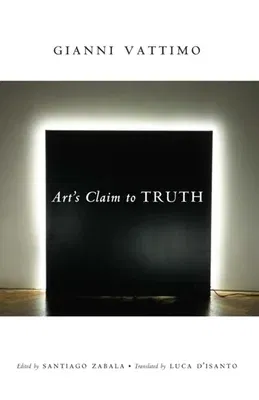First collected in Italy in 1985, Art's Claim to Truth is considered
by many philosophers to be one of Gianni Vattimo's most important works.
Newly revised for English readers, the book begins with a challenge to
Plato, Aristotle, Kant, and Hegel, who viewed art as a metaphysical
aspect of reality rather than a futuristic anticipation of it. Following
Martin Heidegger's interpretation of the history of philosophy, Vattimo
outlines the existential ontological conditions of aesthetics, paying
particular attention to the works of Kandinsky, which reaffirm the
ontological implications of art.
Vattimo then builds on Hans-Georg Gadamer's theory of aesthetics and
provides an alternative to a rationalistic-positivistic criticism of
art. This is the heart of Vattimo's argument, and with it he
demonstrates how hermeneutical philosophy reaffirms art's ontological
status and makes clear the importance of hermeneutics for aesthetic
studies. In the book's final section, Vattimo articulates the
consequences of reclaiming the ontological status of aesthetics without
its metaphysical implications, holding Aristotle's concept of beauty
responsible for the dissolution of metaphysics itself. In its direct
engagement with the works of Gadamer, Heidegger, and Luigi Pareyson,
Art's Claim to Truth offers a better understanding of the work of
Vattimo and a deeper knowledge of ontology, hermeneutics, and the
philosophical examination of truth.

